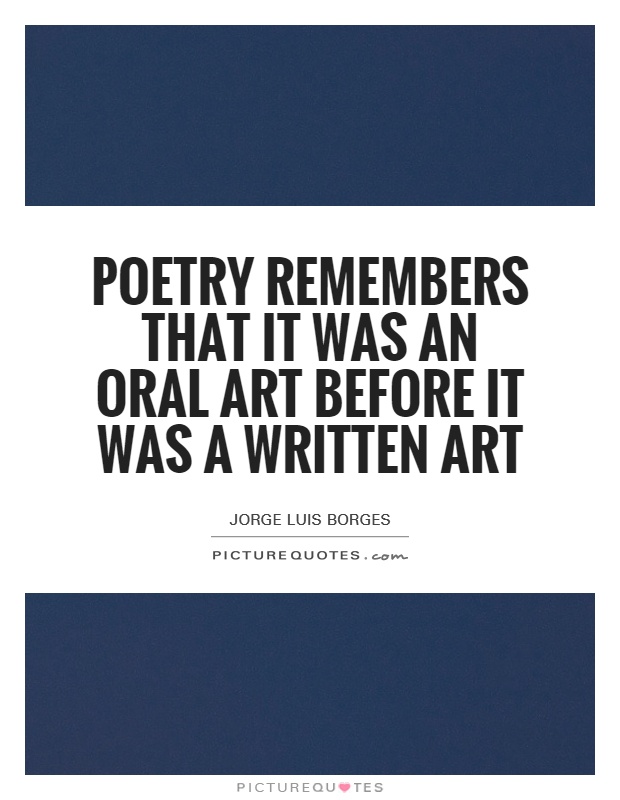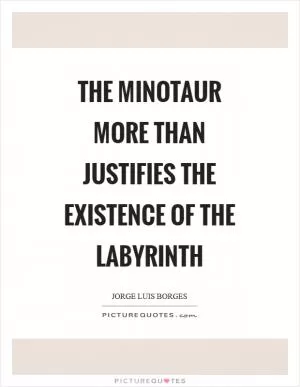Poetry remembers that it was an oral art before it was a written art

Poetry remembers that it was an oral art before it was a written art
Jorge Luis Borges, the renowned Argentine writer, is often considered a master of the written word. However, his work also reflects a deep appreciation for the oral tradition of poetry. In fact, Borges himself once said, "Poetry remembers that it was an oral art before it was a written art." This statement encapsulates his belief in the power and importance of oral storytelling and the ways in which it has influenced the written word.Borges' own writing is heavily influenced by the oral tradition of poetry. His works often incorporate elements of folklore, mythology, and oral storytelling techniques. In his famous collection of short stories, "Ficciones," Borges explores themes of memory, identity, and the nature of reality through a series of intricate and labyrinthine narratives. These stories are often structured like oral tales, with recurring motifs, characters, and themes that echo the patterns of traditional storytelling.
One of Borges' most famous works, "The Aleph," is a prime example of his exploration of the oral tradition in poetry. The story revolves around the discovery of a mystical point in space that contains all other points in the universe. Through this concept, Borges delves into the idea of memory and the ways in which stories and experiences are passed down through generations. The oral tradition is central to this theme, as it is through storytelling that memories are preserved and shared.
Borges' fascination with the oral tradition of poetry is also evident in his poetry. His poems often draw on the imagery and language of folklore and mythology, creating a sense of timelessness and universality. In works such as "Fervor de Buenos Aires" and "El hacedor," Borges explores themes of love, loss, and the passage of time through a lyrical and evocative use of language.
Overall, Borges' belief that "poetry remembers that it was an oral art before it was a written art" is a testament to his deep understanding of the power of storytelling and the ways in which it shapes our understanding of the world. Through his work, Borges pays homage to the oral tradition of poetry and its enduring influence on the written word.












 Friendship Quotes
Friendship Quotes Love Quotes
Love Quotes Life Quotes
Life Quotes Funny Quotes
Funny Quotes Motivational Quotes
Motivational Quotes Inspirational Quotes
Inspirational Quotes